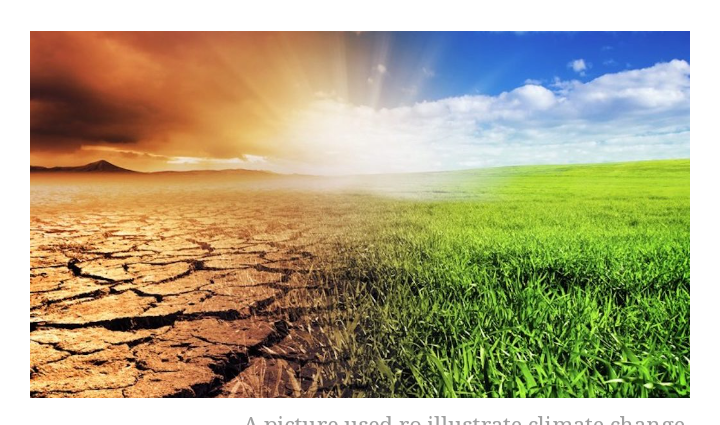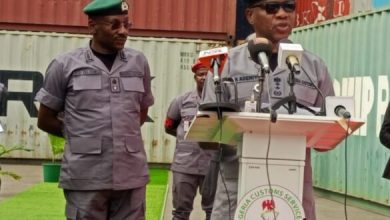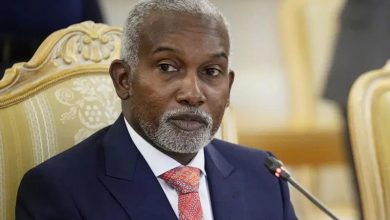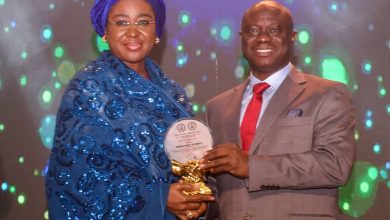Greenwashing Schemes of Multinationals Hindering Climate Adaptation, Mitigation Efforts’
...Shun false solutions, demand Real Zero, not Net Zero at COP28, African representatives told

By Edu Abade
Ahead of this year’s Conference of the Parties (COP28) slated for Dubai, United Arab Emirates (UAE) from November 30 to December 12, 2023, African environmentalists and climate activists have chided multinational oil and gas companies over their greenwashing schemes, which are largely responsible for the delay of actions on climate adaptation and mitigation.
This was the verdict at a virtual media training for about 50 African journalists and climate activists under the Make Big Polluters Pay (MBPP) Africa coalition on Wednesday, November 22, 2023 during which it was again, restated that the Global North, especially the United States of America (USA) is known to be the highest contributor to the global climate crisis.
Speaking on transnational corporations and their destructive activities and operations in Africa, a representative of Corporate Accountability, Helen Neima, particularly decried TotalEnergies Uganda for its environmental infractions on host communities of fossil fuels in the country.
Neima further explained that at an MBPP Retreat in Uganda brought together 11 core members from Africa including five members of a peoples’ tribunal, three and two community leaders to build a movement at the local, regional and international levels with a view to mobilising workable actions and solutions to the climate crisis.
She said the MBPP coalition engaged in community visits, collected evidences, shared documents and exposed Total Uganda for its infractions on communities, as well as organised dialogue sessions on loss and damage with a view to presenting a coherent position at COP28.
On stakeholders’ target of Net Zero by 2050, she maintained that the focus should be Real Zero, Not Net Zero because Africa could not continue to rely on ‘false solutions’ to the climate crises, insisting that false solutions have been a major obstacle to effective communication of climate change issues on the African continent and globally.
In his presentation at the training during which the 2023 Frontline Community Report was launched, Executive Director of We The People, Ken Henshaw, lamented that in spite of being the least polluting contributor to the climate change crises worldwide, Africa has been the highest impacted continent, adding that African governments and participants must address the injustice at COP28.
He stressed that for a just transition, Africa’s representatives at COP208 must demand restoration of ecosystems, holding International Oil Companies (IOCs) accountable to clean up their mess in the Niger Delta before talking of divesting, demand equity in holding the Global North responsible for their destructive activities, as well as make concrete commitment to the Loss and Damage Fund.
In her presentation titled: Leveraging the Media for Climate Reporting, Policy and Research Officer of CAPPA, Zikora Ibeh, examined the critical role of the media in shaping public understanding of climate change, media influence on public opinion and policy-making, and its responsibility in educating and informing members of the public on climate change issues.
On the challenges faced by journalists in effective reporting of climate stories, she listed scale and abstractness, overcoming political and economic pressures, arrests and intimidations, addressing misinformation and climate change denial, risk of audience fatigue and access to resources and some hard-to-reach areas, as some of the major obstacles.
Zikora, who listed strategies for effective climate reporting, stressed the need for journalists to dwell on solution-focused reporting, localize global issues, embrace ethical reporting and be mindful of catastrophism, audience engagement and diverse perspectives while also focusing on building scientific literacy and collaborate with climate experts as well as writing stories from the human angle
According to her, priorities for climate reporting in Africa should include report on the progress made since previous COP meetings, especially in terms of countries meeting their Nationally Determined Contributions (NDCs) under the Paris Agreement, discuss challenges and setbacks in climate action, including any gaps between commitments and actual progress as in the loss and damage fund and explain complex scientific concepts in an accessible way and engaging to the general public.
She also emphasized the need to share stories of how climate change is impacting different countries in Africa, with a focus on vulnerable communities, highlight adaptation and resilience efforts being made at local, national and international levels, balance global perspectives with local stories to show the widespread impact of climate change and the diverse efforts to combat it and include voices from a range of stakeholders, including indigenous communities, youth activists, scientists, policymakers, and business leaders.
Others are to hold governments, corporations and other key players accountable for their actions and commitments related to climate change, investigate and report on issues like greenwashing, lobbying against climate action, market mechanisms and other practices that hinder progress, use reporting to educate the public about climate change and its impacts, as well as encourage public engagement and actions through informative and motivational storytelling.
During the training, Executive Director of Corporate Accountability and Public Participation Africa (CAPPA), Akinbode Oluwafemi, also launched the 2023 Frontline Community Report, which exposed multinational corporations and their destructive extractive activities in Africa and beyond.
In his final submission, he emphasized the need for African governments, their representatives, civil society groups and all stakeholders to demand accountability, commitment and adequate compensation for African countries from the Loss and Damage Fund at COP28.
He also stressed that multinationals engaging in fossil fuel extraction must either do so responsibly or completely stop their activities that have continued to destroy the ecosystem and adopt measures to explore green and renewable sources of energy.












